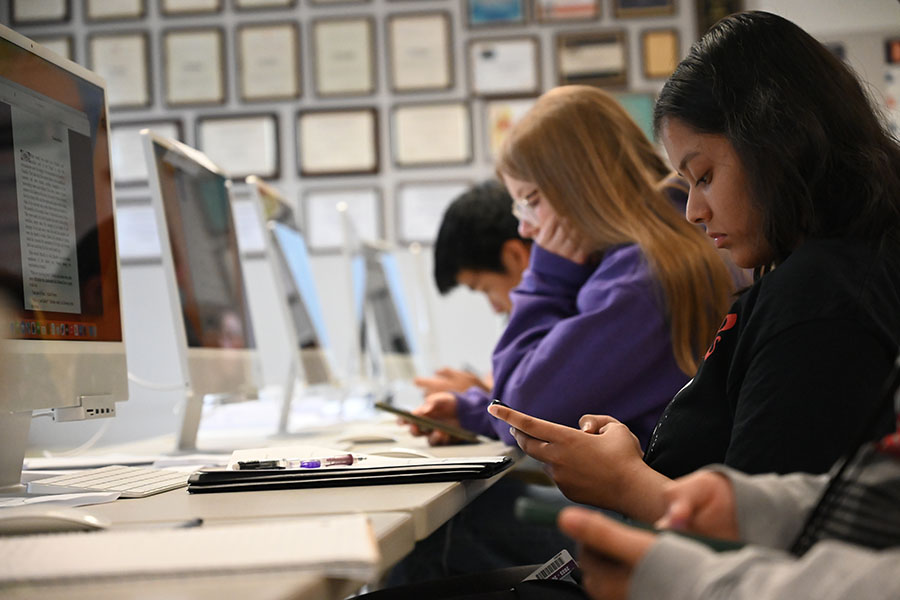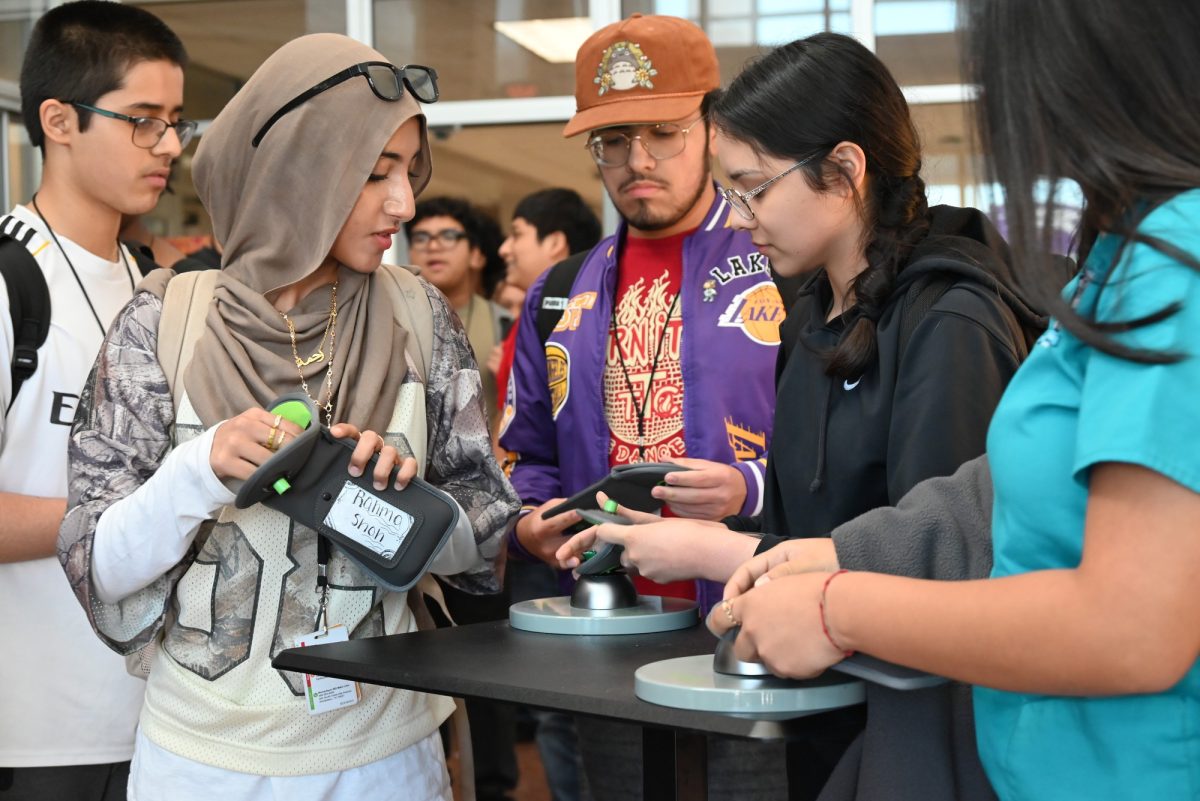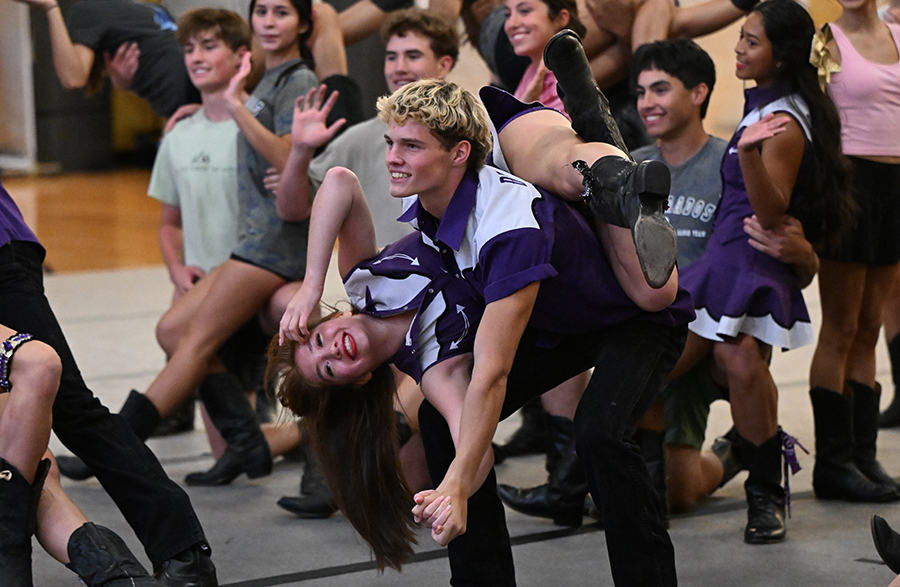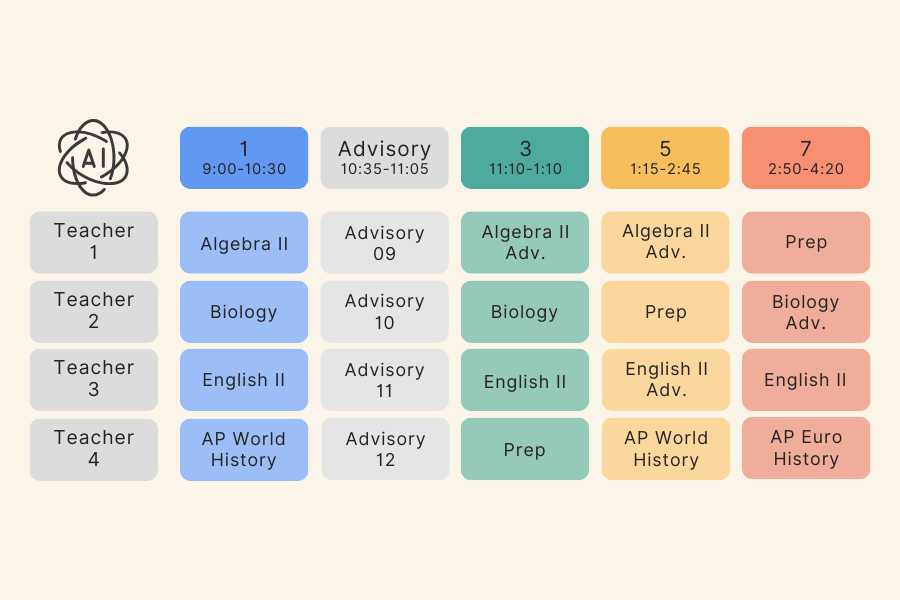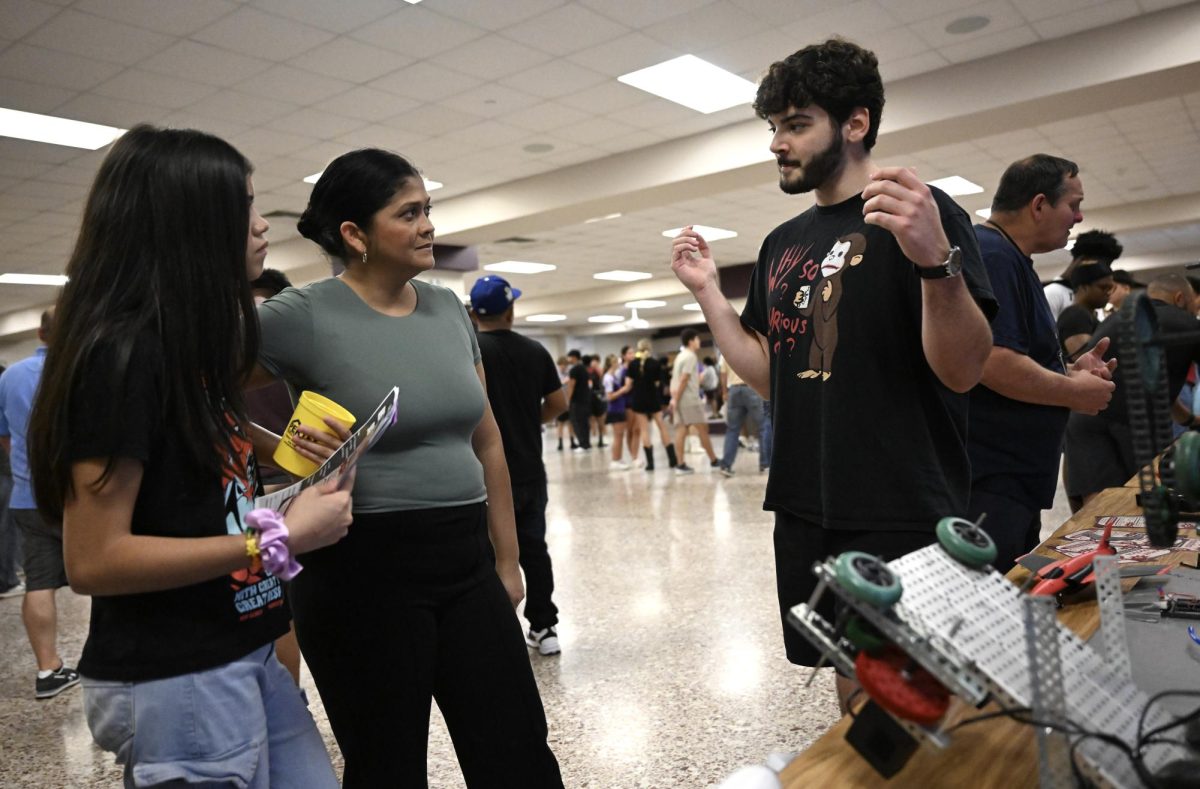RISD is enforcing an updated phone policy this year in which the consequences of students being on their phones during instructional time are more strict.
“The phone policy is that during instructional time, regardless of the location of the student, whether they’re in the hallway, whether they’re in the classroom, they cannot have cell phones out,” Principle Chris Choat said.
The consequences for when a student has their phone out and how teachers are supposed to handle it when a student refuses to give it up are more strict.
“If a student has a conflict or refuses, there’s going to be an administrator that knows that student that can talk to them,” Choat said.
Last year, Assistant Superintendent Administrative Services, Mathew Gibbins, along with other board members revised the phone policy.
“We took out all the old verbiage around pagers and all these kinds of things that were in there. And we just really simplified it.,” Gibbins said. “But the whole idea around a cell phone free environment has been there.”
History teacher John Witter said that while some teachers were happy about it, some teachers had mixed reactions about it.
“I think it just depends on how successful they have been and able to help students make better choices with their phones”, Witter said.
Many students, on the other hand, have disagreements about the phone policy and its restrictions.
“I think the new phone policy is okay, but I wish there would be some changes in it,” Sophomore Abby Gurfein.
According to Gibbins, the phone policy has increased student participation during instructional time last year when they started implementing it.
“We put a survey out in November of last year and the survey out at the end of the year, May. And overwhelmingly we saw that teachers were able to get teaching time back,” Gibbins said.
Witter said that while there’s definitely been fewer issues with the new policy, he believes teachers should educate students to make good decisions with technology so they can continue it as adults.
“I don’t think it doesn’t do any good to lock up student phones for the whole time they’re here and then give them their phones back,” Witter said.
Some students, however, feel like the phone policy will help us manage our phones when they enter the workforce and aren’t allowed to use them.
“I think it’s definitely representative of high school, how it’s growing up to be put out into the real world”, Junior Rosly Tavarez said.
While some students are against the phone policy, others prefer it because of the possibility of using Yondr pouches instead.
“I think we should just keep up with implementing this, especially because I feel like more people are actually listening. I feel like the Yondr pouches would be too extreme,” junior Shahanra Sultana.
Choat said he chose not to be the high school to implement the Yondr pouches this year because of how important this policy change goes through the feeder pattern.
“If Westwood implements the policy, then we get students that come to us already familiar with the policy and it’s not starting something that’s absolutely brand new,” Choat said.
Yonder pouches are currently being used as a pilot program in Lake Highlands High School.
“Just the conversations I’m having with Ms. Jones, their principal. It’s been positive, positive for a lot of the things that phones were responsible for with lack of engagement and instruction with social emotional well-being,” Choat said.
Students of Lake Highlands have to put their phone in the Yondr pouches before school starts and at the end of the school day, they can open their pouches by tapping it on a station with a magnet.
“The concept is relatively simple, but the implementation and trying to figure all that out was something that was new to the district,” said Gibbins.
Through the use of Yonder pouches, some students have concerns about the safety issues that comes with it.
“What if there’s an emergency in the school building? For example, a school shooter, and it’s stuck in the Yondr pouches, and we can’t contact our parents at all, and our parents will be frightened,” Gurfein said.
Gibbins said he addressed what would happen if the students are on lockdown and need access to their phone in the safety plan for RISD.
“We would have the opportunity or they would have the opportunity to get their phones out of the pouch,” Gibbins said.
With the vast student body in RISD, there has been questions about the funding of the Yonder pushes for all the schools in RISD if implemented. Choat said while they were expensive a couple of years ago, the prices have went down.
“Now that more and more of our secondary schools are going into it, those prices are going down because we’re also ambassadors for Yonder,” Choat said. “If we put it in high schools this size and it’s working well, that helps their business as well.”
Choat said the district is continuing to see positive results from the Yondr pouches and are willing to commit to them.
“If I had to put a guess to it, I would say every secondary school in Richardson ISD is going to be a Yondr campus within a year or two,” Choat said.
However, some students aren’t fond of locking their phones in the pouches during school hours.
“I think it’s too extreme and it would just make students mad about it. I think the policy we have right now is already helping enough with distractions”, junior Lux Walker said. “We don’t need the Yondr.”
Gibbins said Superintendent Tabitha Branum’s main focus is to improving the instructional environment.
“Anything that she can do to help that she’s going to support, whether it’s culturally, financially, she wants to do whatever she can to help her campus and principals to have that,” Gibbins said.
Choat believes the phone policy will be successful and it will become people’s normal.
“I’m a firm believer that we need to teach responsible use with the phones because they’re not going away”, Choat said.

